Displaying 601-610 of 893 results
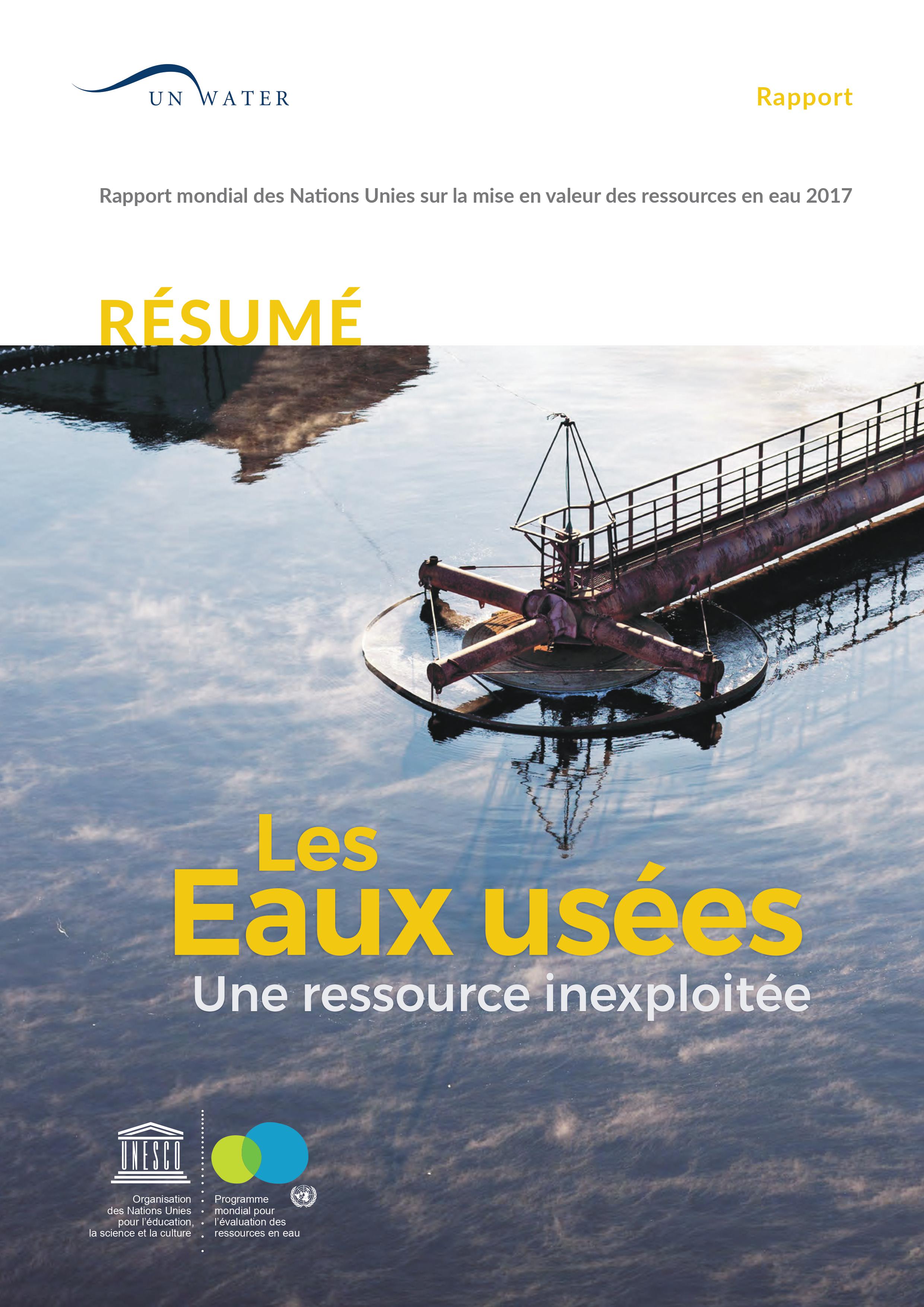
Résumé – Les Eaux usées: Une ressource inexploitée – Raport mondial des Unies sur la mise en valeur des ressources en eau 2017
A plupart des activités humaines utilisant l’eau produisent des eaux usées. À mesure que la demande totale d’eau augmente, la quantité d’eaux usées produites et la charge polluante totale augmentent continuellement dans le monde entier.Dans tous les pays sauf les plus développés, la grande majorité des eaux usées sont déversées directement dans l’environnement sans traitement adéquat, avec des conséquences néfastes pour la santé humaine, la productivité économique, la qualité des ressources en eau douce et les écosystèmes.
 5
5


 Report issue
Report issue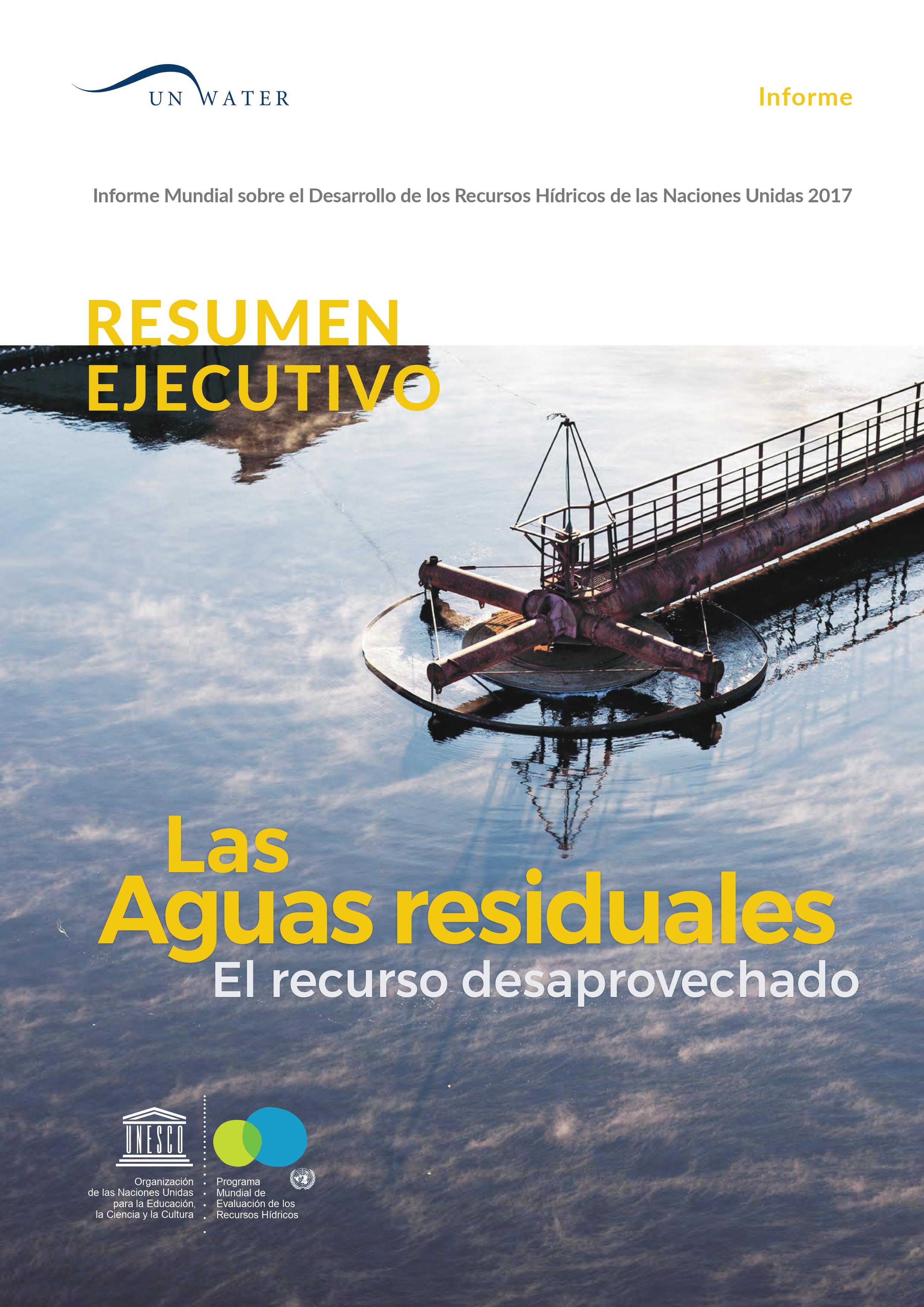
Resumen Ejecutivo – Las Aguas Residuales: el recurso desaprovechado – Informe Mundial sobre el desarollo de los recursos Hidricos de las Naciones Unidas 2017
La mayoría de las actividades humanas que emplean agua producen aguas residuales. A medida que aumenta la demanda total de agua, la cantidad de aguas residuales producidas y la carga contaminante total de las mismas aumentan continuamente en el mundo entero. En todos los países, salvo en los más desarrollados, la gran mayoría de las aguas residuales se vierte directamente en el medio ambiente sin tratamiento adecuado, con consecuencias perjudiciales para la salud humana, la productividad económica, la calidad de los recursos ambientales de agua dulce y los ecosistemas.
 4
4


 Report issue
Report issue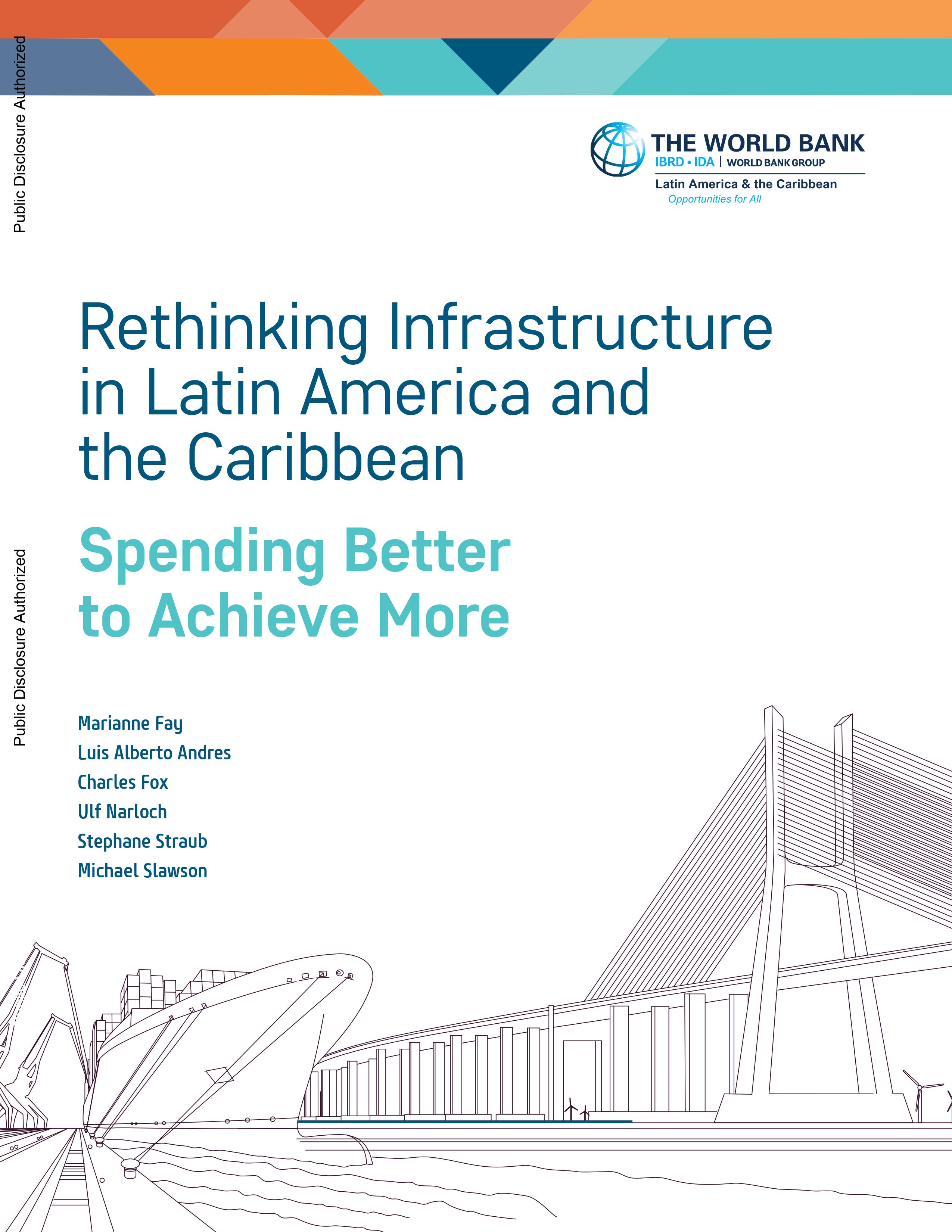
Rethinking Infrastructure in Latin America and the Caribbean: Spending Better to Achieve More
Latin America and the Caribbean does not have the infrastructure it needs or deserves given its income level. Infrastructure also falls short of what is needed to advance social integration and achieve higher growth and prosperity. Moreover, the region’s infrastructure does not correspond to the aspirations of its growing middle class. This report has one main message: Latin America can dramatically narrow its infrastructure service gap by spending efficiently on the right things.
 5
5


 Report issue
Report issue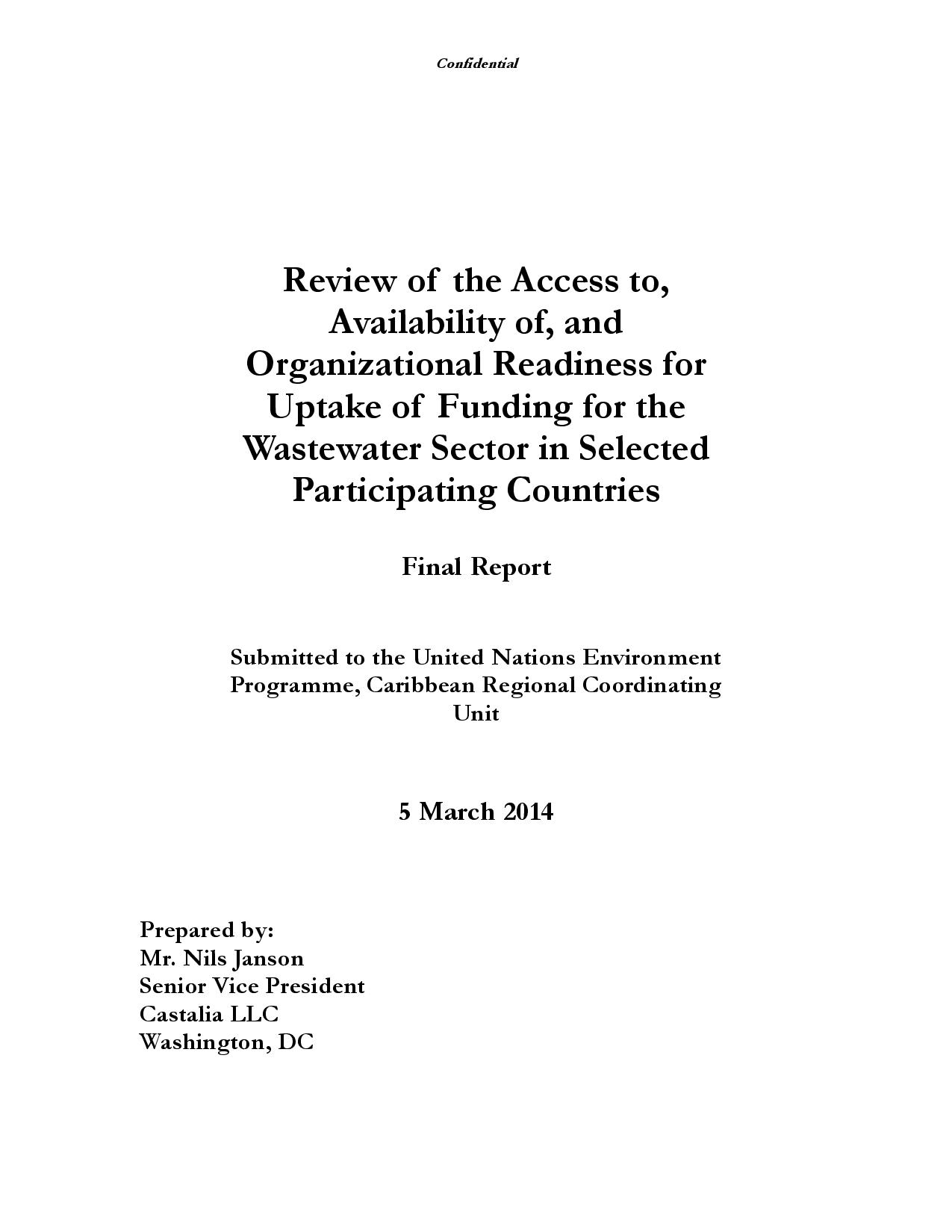
Review of the Access to, Availability of, and Organizational Readiness for Uptake of Funding for the Wastewater Sector in Selected Participating Countries
The Caribbean Regional Fund for Wastewater Management (CReW) Project aims to address some of the critical issues that Caribbean countries face in managing wastewater treatment systems. CReW has funded pilot projects in four of the nine participating Caribbean countries. An objective of these pilot projects is to determine an appropriate strategy for helping participating countries improve the management of wastewater treatment systems. The resulting strategy could be applied to the remaining participating countries, as part of a possible second phase of the CReW Project.
 4
4


 Report issue
Report issue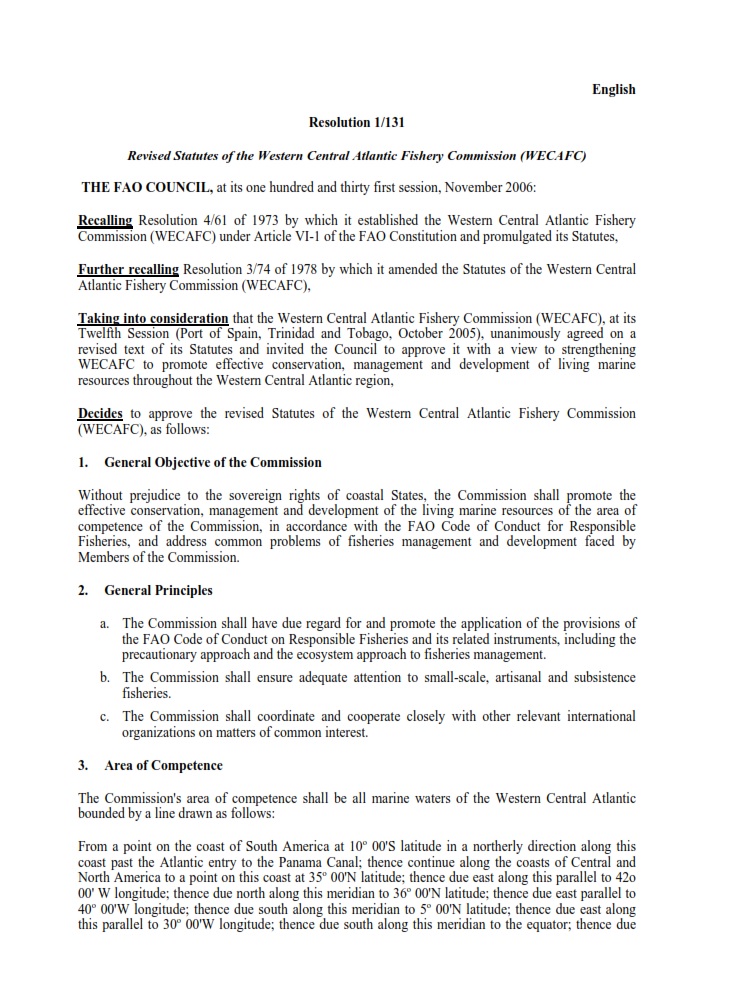
Revised Statutes of the Western Central Atlantic Fishery Commission (WECAFC)
This document contains the revised and approved statues of the Western Central Atlantic Fishery Commission (WECAFC). The FAO Council approves its general objective principals, area of competence, species, membership, functions, institutions, reporting protocols, observers, rules f procedures and cooperation with international organization.
 4
4


 Report issue
Report issue
Revisión rápida de los logros alcanzados por los mecanismos interinos de coordinación CLME+
Este Informe técnico realizado por Peter Whalley muestra una Revisión rápida de los logros alcanzados por los mecanismos interinos de coordinación del proyecto "Catalizando la Implementacion del Programa de Acciones Estratégicas (PAE) para el Manejo sostenible de los Recursos Marinos Vivos compartidos en los Grandes Ecosistemas Marinos del Caribe y de la Plataforma del Norte de Brasil" CLME+.
 7
7


 Report issue
Report issue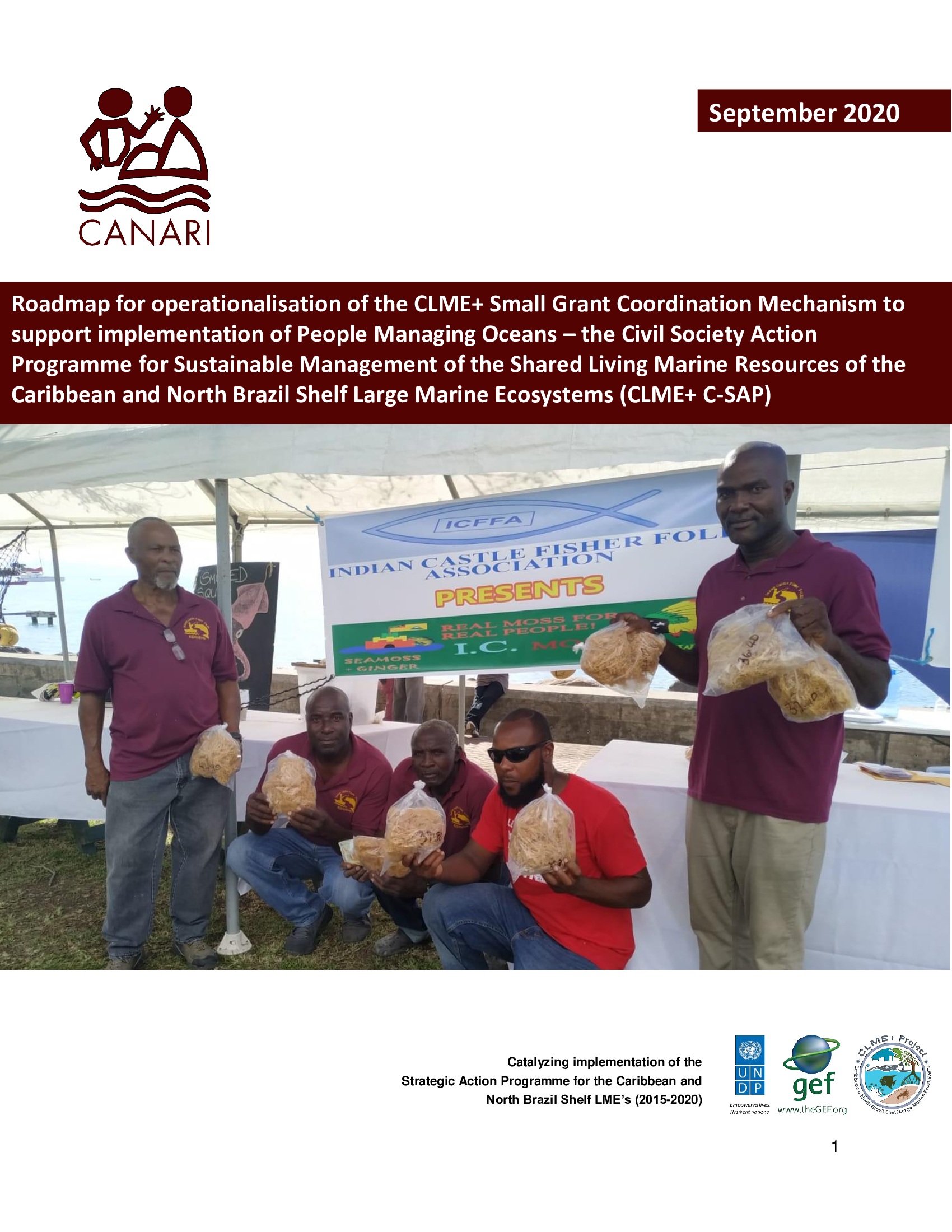
Roadmap for operationalisation of the CLME+ Small Grant Coordination Mechanism to support implementation of People Managing Oceans – the Civil Society Action Programme for Sustainable Management of the Shared Living Marine Resources of the Caribbean and North Brazil Shelf Large Marine Ecosystems (CLME+ C-SAP)
This document describes the roadmap for operationalization of the CLME+ Small Grant Coordination Mechanism to support implementation of People Managing Oceans – the Civil Society Action Programme for Sustainable Management of the Shared Living Marine Resources of the Caribbean and North Brazil Shelf Large Marine Ecosystems (CLME+ C-SAP)
 7
7


 Report issue
Report issue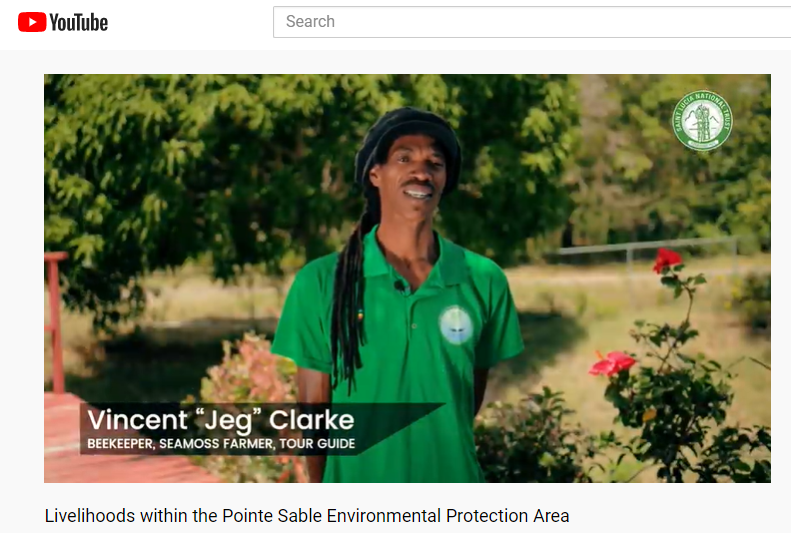
Saint Lucia National Trust (SLNT) documentary: Livelihoods within the Pointe Sable Environmental Protection Area
The Saint Lucia National Trust (SLNT) has produced a video documentary on livelihoods in the Ma Kote Area and the Point Sable Environmental Protection Area The SLNT produced this video documentary highlighting the importance of protecting their coastlines as well as the symbiotic relationship between the mangroves and the persons working within the Point Sable Environmental Protection Area (PSEPA). Interviews with two entrepreneurs who operate apiaries, seamoss farms and eco tours in the Ma Kote and PSEPA area feature the threats to their livelihoods and how they propose to overcome these threats. The Caribbean Natural Resources Institute (CANARI) provided support to SLNT on the development of the video documentary under the regional PISCES project on coastal and marine ecosystem conservation and sustainable livelihoods.



 Report issue
Report issue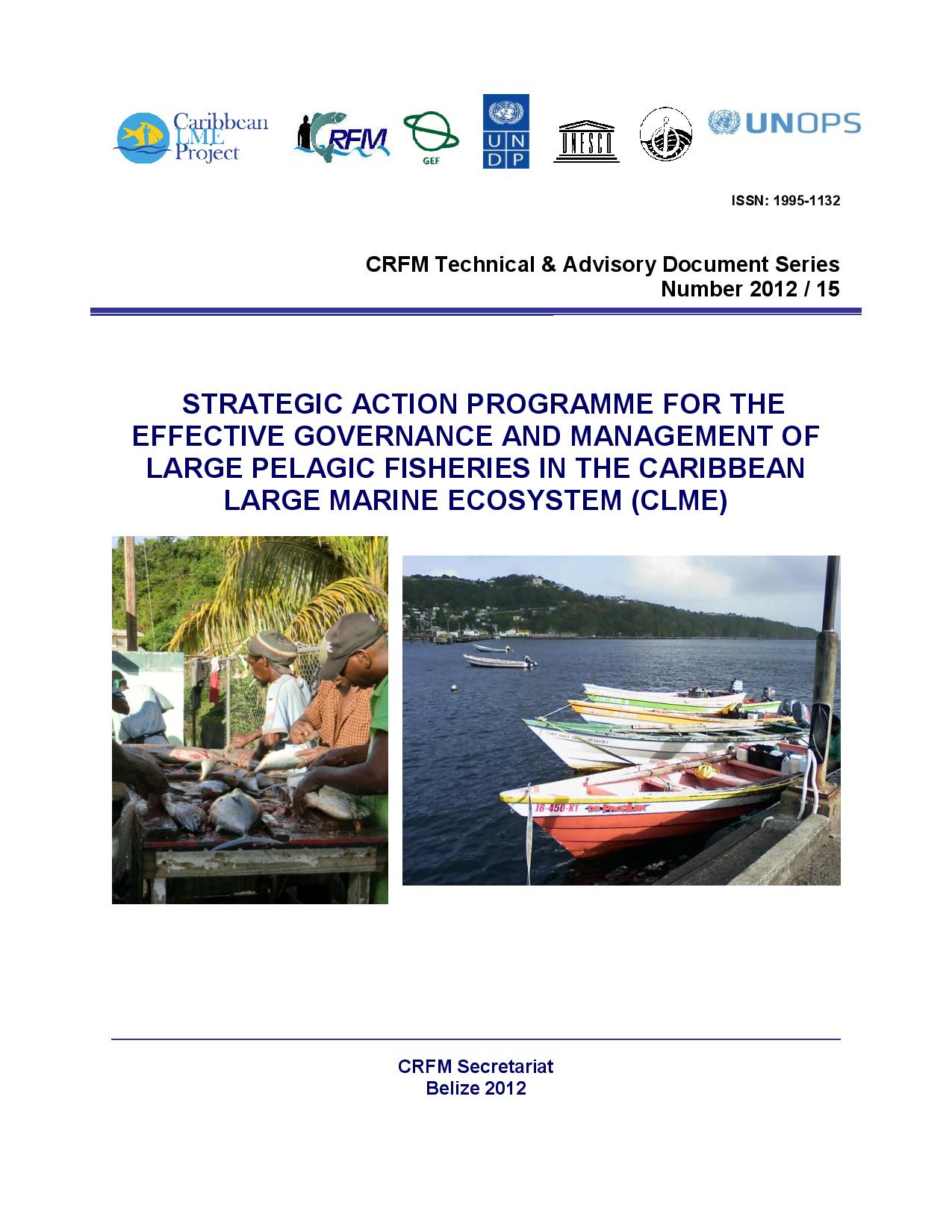
SAP Report on Large Pelagic Fisheries – CRFM Technical and Advisory Document No. 2012 / 15
To date no abstract has been uploaded for this document
 4
4


 Report issue
Report issue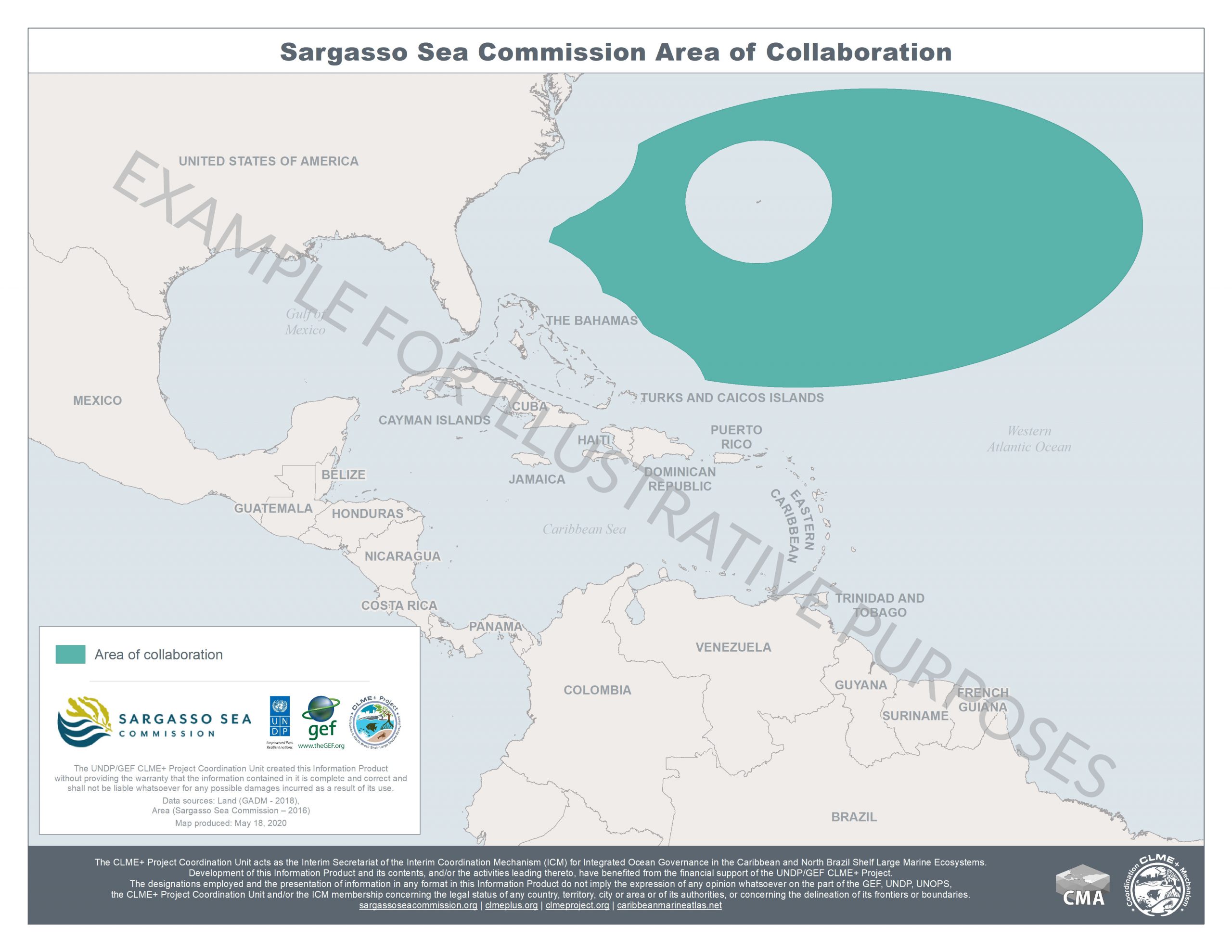
Sargasso Sea Commission Area of Collaboration
To date no abstract has been uploaded for this document
 4
4


 Report issue
Report issue

